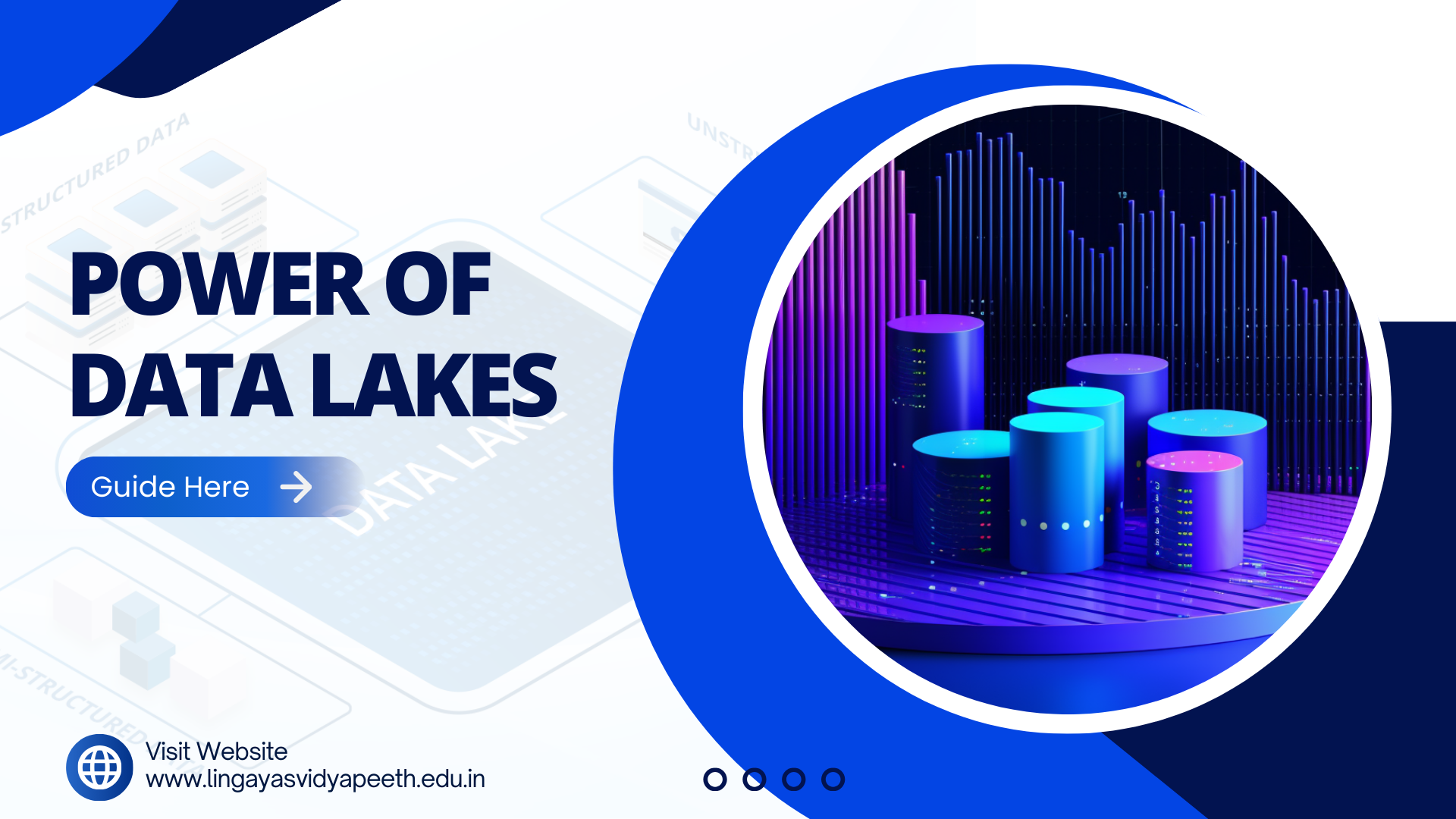Home » What is Data Lakes? Endless Opportunities for Computer Applications

In this digital era, data has become an essential asset for businesses. As the volume and variety of data continue to grow exponentially, traditional data warehousing solutions have found it difficult to keep pace. This is where data lakes come handy.
A data lake is a centralized repository that stores huge amounts of raw data in its original format. In contrast to data warehouses, that require data to be structured and cleaned before being stored, data lakes can accommodate unstructured, semi-structured, and structured data. This flexibility allows businesses to collect and store a wide range of data, including text, images, videos, and sensor data.
Ethics and Bias Play in a Data-Driven Era
Several computer applications are essential for effectively managing and utilizing data lakes:
Top Collaborative Tools and Platforms for Data Science Students
While data lakes offer numerous benefits, they also present some challenges:
Data-Driven Customer Experience: The Future of Marketing
Conclusion
Data lakes have emerged as a powerful tool for businesses to unlock the value of their data. By providing a flexible, scalable, and cost-effective solution for storing and analysing large amounts of data, data lakes enable organizations to gain competitive advantages and drive innovation.
if you’re passionate about pursuing a career in computer applications and making it big in the field of computers then BCA at Lingaya’s Vidyapeeth is the perfect fit you. Being the best university in Delhi NCR, our program equips you with all the latest skills and technical knowhow to excel in the digital field. Enrol now and give yourself a brilliant future!
From
Mr. Monu
Teaching Assistant
School of Computer Science Engineering
Lingaya’s Vidyapeeth
Top BCA Colleges in Delhi NCR
RECENT POSTS
CATEGORIES
TAGS
Agriculture Agriculture future AI Architecture artificial intelligence Bachelor of Commerce BA English BA Psychology BTech AIML BTech CSE BTech cybersecurity BTech Engineering Business management career Career-Specific Education career guide career option career scope Civil engineering commerce and management Computer Science Computer science engineering Data science degree education Engineering Engineering students English Literature english program Fashion Design Fashion design course Higher Education Journalism journalism and mass communication law Law career Machine Learning mathematics MBA MBA specialization Mechanical Engineering Pharmacy Psychology Research and Development students
Nachauli, Jasana Road, Faridabad, Haryana
Address: C-72, Second Floor, Shivalik, Near Malviya Nagar,
Above HDFC Bank, New Delhi 110017
Landline No. - 011-46570515 / 45138169 / 41755703
Mobile No. - +91-7303152412 / +91-7303152420 / +91-9311321952
Toll Free: 1800-120-4613
Mobile : 8447744303 | 8447744304 | 8447744306 | 8447744309
8700003974 | 8700003411 | 8700003749
Copyrights © 1998 - 2025 Lingaya's Vidyapeeth (Deemed To Be University). All rights reserved.
LV only conducts physical/online verification of any document related to examination on the following email id:
It is important to note that the following email IDs and domains are fraudulent and do not belong to our university.